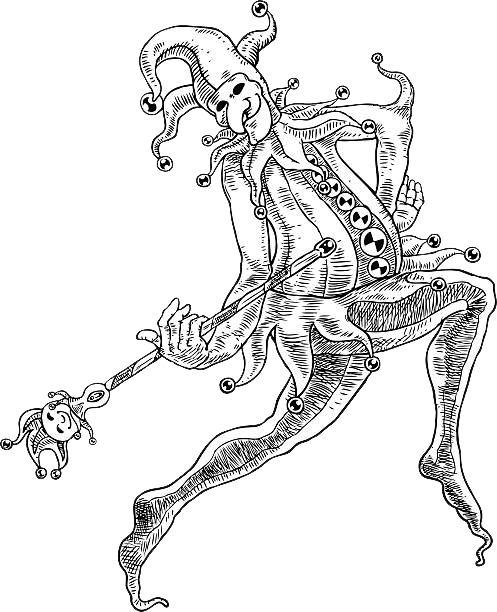4.1
Metanoia & Remodeling Indeterminacy
“Our desire is of the Other.”
—Jacques Lacan, Seminar IX
Faced with the inexorable challenges imminent in the 21st century we have a choice to regress into the familiarity of the past or become kin with the uncertainties that the future beholds. The unsettling musical aesthetics on Of Strings and Kings serve as a caution not to fetishize the nostalgia of the past. Rather than rejecting the terrifying processes that are subsuming the human subject we should consider embracing the alien processes mediating our relations. Donna Harraway offers us her usual multispecies feminist sagacity suggesting that we should “stay with the trouble”93 rather than withdraw into old ways of being. By eschewing familiarity her provocations encourage humanity to adapt and refigure our relations through the act of sympoiesis, or creating together. The music in this exposition aims to embody this sympoietic play state. Although embedded inside the reactionary dread of neo-feudal music to depict the economic gauntlet that needs to be surpassed, I tried to smuggle in some constructive xenophilic characteristics that reveal some joyful antics for human-algorithm exchange. Conceptually embodied in the musical axioms of harmony, duets, tuning, practice, improvisation, and play these serve as techniques for steering in the turbulent seas of indeterminacy.
Luciana Parisi also notes that this cybernetic entanglement has made us “the bastard creature of neoliberal capital, the political potential of this configuration of subjectivity has also remained limited to an impasse or paradox that the instrument of power comes to coincide with the instrument of emancipation.”94 These pieces of music embrace this exact paradox and exemplify it. By denaturalizing the human reasoning process with information systems the notion that cultural hierarchy is inherent rather than constructed can be destabilized. Abandoning the field of machine intelligence to autocratic dominance isn’t something that we can afford hence the call to situate ourselves in an active role in its development.
Anke Hennig’s conception of metanoia95, described as the process of becoming alien, provides us a healthy process-oriented model for integration, mutation, and enmeshment with the other. These methods provide the affordances to connect with another subjectivity, another place, another time. At its most extreme, it changes our understanding of the world around us. Metanoia — meaning literally a change of mind or a conversion — refers to a new way of knowing. To experience the world in a new domain is to accept that our thinking has been irrevocably transformed. The tiers of xeno-duets cultivated throughout this process have radically challenged and transformed my notions of selfhood, ecological boundary definitions, learning systems, and tuning. I hope that this piece was able to convey my grave concerns, but more importantly, was able to illustrate that it is possible to play in tune, in time, and in concert with one another and with the machines. By learning to listen for alien cues we can find new harmonies and unlock new futures.
93 "Duke University Press - Staying with the Trouble: Making Kin in the Cthulucene" https://www.dukeupress.edu/staying-with-the-trouble
94 "Instrumentality, or the Time of Inhuman Thinking" https://technosphere-magazine.hkw.de/p/Instrumentality-or-the-Time-of-Inhuman-Thinking-5UvwaECXmmYev25GrmEBhX
95 "Metanoia: A Speculative Ontology of Language, Thinking, and the Brain
- Bloomsbury Publishing" https://www.bloomsbury.com/uk/metanoia-9781350004726/
